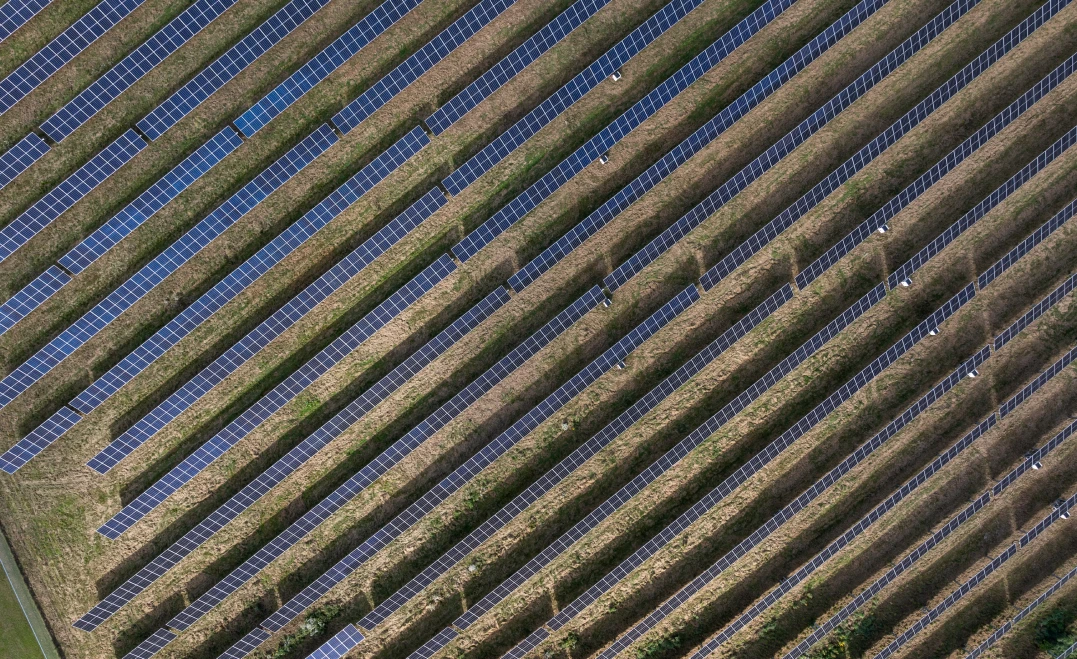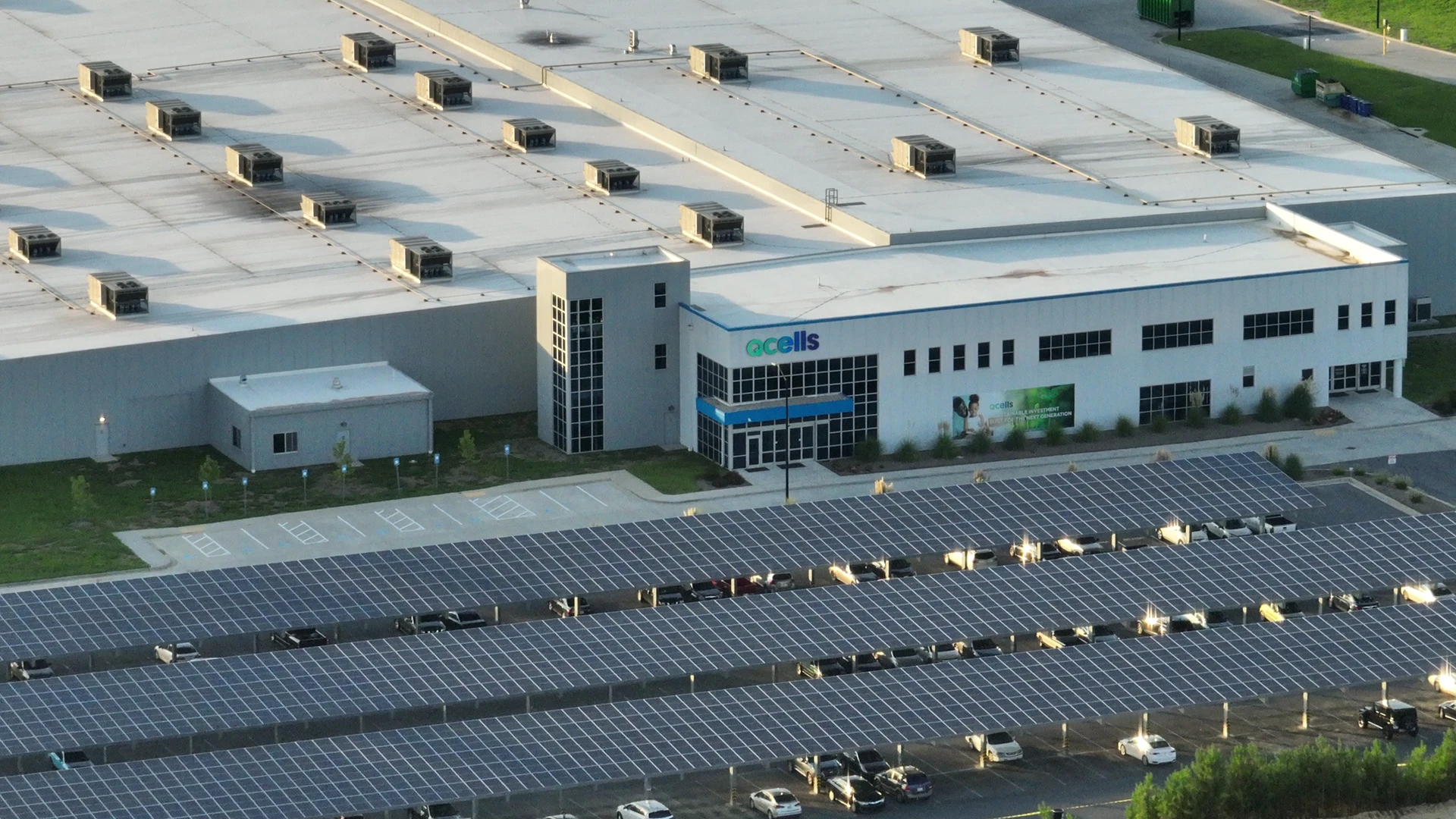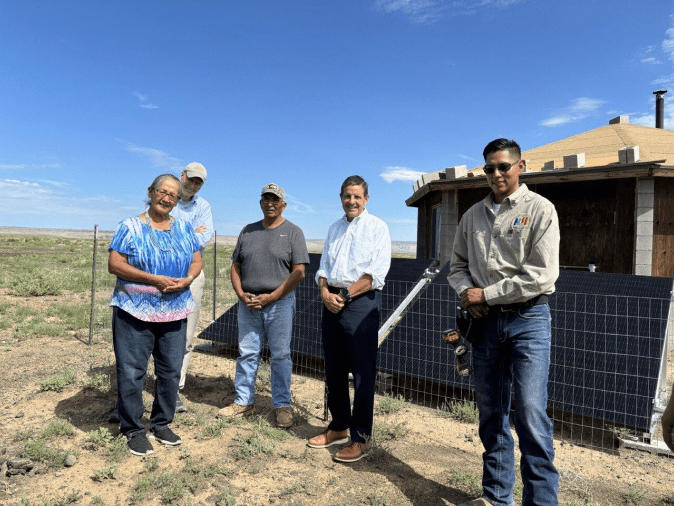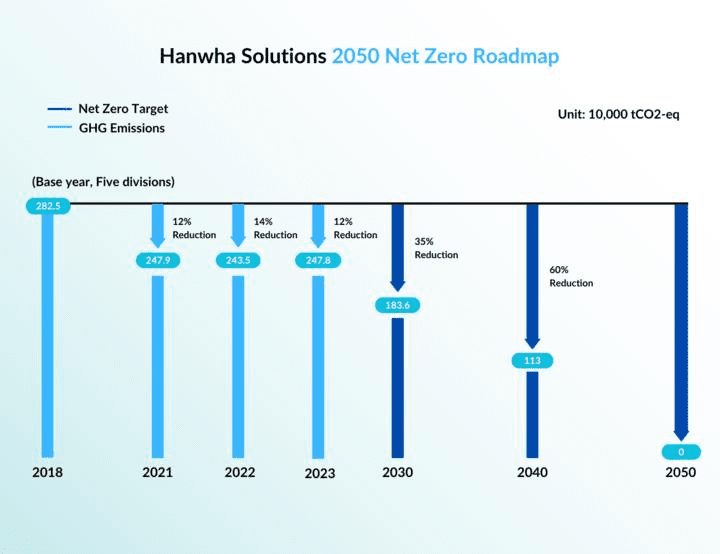We’re Innovating Today to Power
a Cleaner Tomorrow.
As a leader in complete energy solutions, we’re on a mission to a more sustainable world.
Qcells by the Numbers
Total GW of panels manufactured in the U.S. to date (2019 – 2024).
Total energy potential of U.S. produced solar panels from factory to date.
Estimated emissions avoided if this energy were used instead of power from the grid.
Number of homes that could be powered for one year by 33,633 GWh. That is more than the number of Housing Units in Georgia.
Note: Calculations are based on projected energy generation from Qcells’ products manufactured in the U.S., based on insolation values for our Georgia factory location. These utilize established best practices, using resources like the EPA Greenhouse Gas Equivalencies Calculator and NREL’s PVWatts Calculator.
For more details on Qcells’ commitment to U.S. manufacturing, click here.

Net Zero Target
Qcells is committed to sustainability in everything we do, driving innovation throughout our lifecycle to minimize our carbon footprint and provide completely clean energy solutions for all. We have proudly committed to reducing our Scope 1 and 2 greenhouse gas emissions by 35% by 2030 and achieving net zero emissions by 2050.*
* In alignment with our parent company, Hanwha Solutions, utilizing 2018 as a base year
Environment
Sustainability plays a core role in Qcells’ mission, as we strive to provide completely clean energy solutions for our customers through technology and innovation.
Corporate Status
- Qcells is proud to commit to Net Zero by 2050, in alignment with our parent company, Hanwha Solutions, with a 35% reduction by 2030.
- For 2023, Hanwha Solutions received an A- Climate score from CDP, a non-profit that runs the global environmental disclosure system, for its consolidated response on climate change.

U.S. Manufacturing Facilities
- In 2024, our Dalton manufacturing facilities generated more than 823 MWh of on-site solar energy from Qcells solar panels.
- In ongoing efforts to reduce our carbon emissions, Qcells has been tracking Scope 1 and 2 and has recently expanded to include Scope 3.
- In our Dalton manufacturing facilities, our emissions by module production volume have reduced since 2019 despite factory production increases.

Eco-Labels
- Qcells believes in a sustainable, low carbon future. We know that our mission of completely clean energy starts at home, which is why we are proud to be the very first monocrystalline solar product to achieve EPEAT registration.
- As part of EPEAT registration, we have completed two life cycle analyses (LCAs) with more planned. The LCAs indicate Qcells solar panels produce 37% lower embodied carbon levels compared to global standards.
- We are committed to enabling a circular economy within the solar sector, which is why we are proud to be actively pursuing recycling partnerships globally.
Decarbonization Partners for Customers
- Qcells will supply Microsoft with 12 GW of solar panels and engineering, procurement and construction (EPC) services over an 8-year period – the equivalent to powering more than 1.8 million homes annually.
- Qcells was proud to partner with Alton Steel to develop a 6.5 MW solar project, which will power 10% of the steel mill’s operations and make it the second steel mill in the U.S. to invest in on-site solar.
Social
Qcells is committed to fostering a workplace that is safe and welcoming to all. Upholding the human rights of all workers and community members globally is core to our Code of Conduct

Internal Impact
- Internship and training development pipeline.
- We are proud to be a Champion-level partner to Women in Renewable Industries and Sustainable Energy (WRISE), a national nonprofit organization that works across the renewable energy economy with a broad purpose – to change our energy future through the collective power of community.
- Since its launch in 2023, our employee-led internal sustainability group, Clean Energy Crew (CEC), has grown 316% in membership. In addition to driving awareness and progress on sustainability internally, in its inaugural year, the CEC enabled a benefits change to add paid volunteer time for North American Employees.

Community Impact
- Qcells was proud to partner with Greentech Renewables and Footprint Project to donate solar panels to disaster relief efforts following the devastating Hawaii fires in Maui, Hawaii.
- Qcells donated 1,000 solar panels to Navajo Power Home to provide reliable, clean power for more than 300 remote, off-grid homes, previously reliant on diesel generators for electricity in the Navajo Nation.
- FIRST (For Inspiration and Recognition of Science and Technology) Robotics is an international organization intended to teach and enable competition around robotics development. Qcells employees in Georgia were excited to support high school students in Bartow and Whitfield counties during their competition in March 2023.
Governance
Qcells is committed to conducting business in an ethical and honest manner. This includes responsible supplier selection by conducting business with suppliers who share the Company’s commitment to integrity.

Internal Compliance
- Qcells knows that sustainability starts with us, which is why our factories have proudly achieved ISO14001 and ISO45001 Certification for Environmental Management Systems, and our office buildings are LEED and ENERGY STAR Certified.
- In 2024, Qcells implemented a global conflict mineral management policy in alignment with Responsible Mineral Initiative guidance and process.
- Upholding the human rights of workers, both our own and our suppliers’, is core to our Code of Conduct. Qcells has joined the Solar Energy Industries Association (SEIA) in signing the SEIA Forced Labor Prevention Pledge.
- Qcells is a subsidiary of Hanwha Solutions, which has had a Corporate Governance Charter in place since 2021. For more information on our corporate governance, including our ESG Committees, Policies and Governance, please reference our 2024 Hanwha Solutions Sustainability Report.
Corporate Status
- We are happy to be a founding member of the Ultra Low Carbon Solar Alliance along with other companies across the solar panel value chain committed to the deployment of ultra low-carbon solar panels to accelerate reductions in solar supply chain GHG emissions.
- We are a committed member of Solar Energy Industries Association (SEIA), the national trade association for the solar and solar / storage industries. We are also members of the Solar Energy Manufacturers for America (SEMA) Coalition.
- Other organizations Qcells partners with include the Northwest & Intermountain Power Producers Coalition (NIPPC), New York Battery & Energy Storage Technology (NY-BEST), Midcontinent Independent System Operator (MISO), California Energy Storage Alliance (CESA), Colorado Solar & Storage Association (COSSA), Arizona Competitive Power Alliance (AZCPA), and the Oregon Solar & Storage Industries Association (OSSIA).
About Us
Talk With Us!

“When it comes to carbon footprint, not every solar panel is created equal. That is why it is not enough to just be a leader in clean energy solutions. We believe in striving towards a balance of People, Planet, and Prosperity – the Triple Bottom Line – as part of our journey in conserving our resources and building a Circular Economy. As you get to know Qcells, you will learn that sustainability is at the core of who we are. Together we can change tomorrow.”
– Kelly Weger
Senior Director of Sustainability

 USA & Canada
USA & Canada Korea
Korea Germany
Germany United Kingdom
United Kingdom France
France Italy
Italy Netherlands
Netherlands Greece
Greece Poland
Poland Portugal
Portugal Hungary
Hungary Spain
Spain Japan
Japan